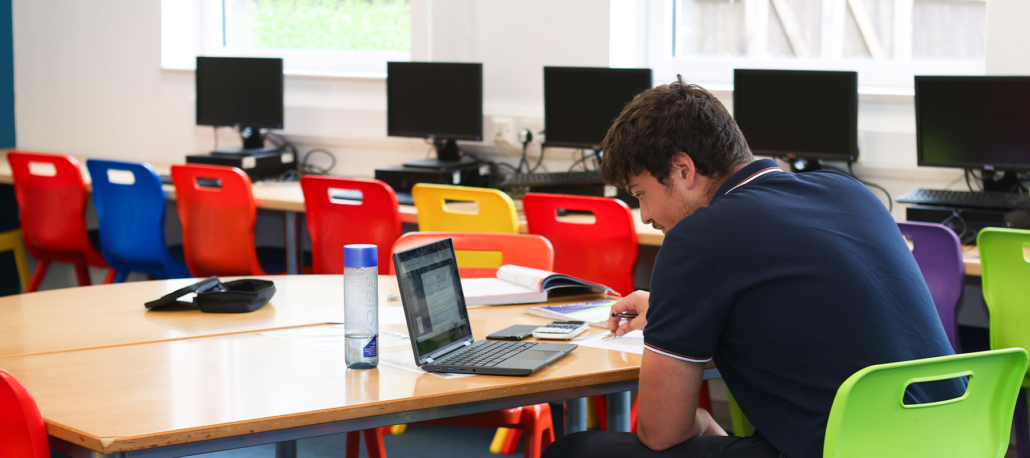Religious Studies
It is our intent for the Religious Studies element of our school curriculum to engage, inspire, challenge and encourage pupils, equipping them with the knowledge and skills to ask and answer challenging questions.
We would like them to be able to hold meaningful conversations and articulately express themselves on a range of topics. Religious Studies contributes significantly to the Christian character of the school and enables pupils to ask deep and often searching questions about their own faiths and beliefs, and the beliefs, faiths and opinions of others regarding pertinent contemporary moral issues. Pupils will be able to deepen their understanding of God as encountered and taught by Christians. The teaching of RS makes links between the beliefs, practices and value systems of a range of faiths and worldviews studied. The RS curriculum will help to develop responsibility and respect for all aspects of diversity, whether it be social, cultural and religious, and prepare pupils well for life in modern Britain. The overarching concepts for ‘Religious Studies’ at Townsend School are tied in with the school vision: Respect For All, Achievement For All which is based on the biblical principle of loving your neighbour.
Course Details
A Level Religious Studies OCR H573
Specification – https://www.ocr.org.uk/qualifications/as-and-a-level/religious-studies-h173-h573-from-2016/
Course Description
This is a 2 year course which provides a coherent and thought-provoking programme of study. Students develop their understanding and appreciation of religious beliefs and teachings, as well as the disciplines of Ethics and the philosophy of religion.they learn to analyses and engage with reali life issues and tackle complex theories.
Programme of Study
Component 1 – Philosophy of Religion
Students study philosophical language and thought, and issues and questions raised by belief:
- Ancient philosophical influences
- the nature of the soul, mind and body
- Arguments about the existence or non-existence of God
- The nature and impact of religious experience
- The challenge for religious belief of the problem of evil
- Ideas about the nature of God
- Issues in religious language
Component 2 – Religion and Ethics
Students explore key concepts and the works of influential thinkers, ethical theories and their application:
- Normative ethical theories
- The application of ethical theory to two contemporary issues of importance
- Ethical language and thought
- Debates surrounding the significant idea of conscience
- Sexual ethics and the influence on ethical thought of developments in religious beliefs.
Component 3 – Development of Christian Thought
Students explore:
- Religious beliefs, values and teachings, their interconnections and how they vary historically and in the contemporary world
- Sources of religious wisdom and authority
- Practices which shape and express religious identity, and how these vary within a tradition
- Significant social and historical developments in theology and religious thought
Key themes related to the relationship between religion and society.
Assessment
All assessments are written essays which measure knowledge and understanding of religion and belief, including:
- religious, philosophical and/or ethical thought and teaching
- influence of beliefs, teachings and practices on individuals, communities and societies
- cause and significance of similarities and differences in belief, teaching and practice
- approaches to the study of religion and belief.
- analysis and evaluation aspects of, and approaches to, religion and belief including their significance, influence and study.
Paper 1 – Philosophy of Religion
- 120 marks
- 2 hours
- 3% of overall A Level
Paper 2 – Religion and Ethics
- 120 marks
- 2 hours
- 3% of overall A Level
Paper 3 – Development of Christian Thought
- 120 marks
- 2 hours
- 3% of overall A Level
Home Learning
Students will be given homework tasks, set on google classroom.
They will complete times tests or essays approximately every three weeks but will also learn by:-
- online quizzes,
- exam question practice,
- research on specific topics,
- preparing a presentation,
- watching relevant documentaries,
- wider reading,
- peer marking
- role play
- visit and speakers
Where can Religious Studies take you
Knowledge of other cultures and world religious beliefs can be useful in many jobs where you are working with the public or communities. It offers life skills as it teaches you how to engage with others and be aware of issues that impact society and the world.
Further Study
A Level Religious Studies/ Philosophy
Careers
- Counselling
- Law
- Social Services
- Marketing
- Sales and Advertising
- Catering and Hospitality
- Leisure, Sport and Tourism
- Retail Sales and Customer Services
- Education and Training
- Medicine and Nursing
- Service Sector Roles
- Music industry
My Future My Career My RE – http://casestudies.reonline.org.uk
How can parents support their child’s learning
- Ask students about what they are currently learning about.
- Get your child to teach you something they have been taught.
- Quiz your child on their learning.
- Ask questions about any moral or ethical issues that might come up on the news e.g. Women in Leadership, Sexuality, Unethical Business Practices, etc.
- Play devils advocate when discussing certain topics to get them to consider a range of perspectives.
- Challenge their views and let them clearly justify with reasons and evidence their beliefs.
- Provide a quiet environment or space for them to revise, make flash cards, posters, etc.
- Time your child’s exam question practice.
- Support them in creating a revision timetable.
- Encourage your child to do wider reading around the subject to enhance their knowledge.
Useful Links
- Peped Educational and Teaching Resources https://peped.org
- Panpsycast Podcast https://thepanpsycast.com/home
- Mr McMillan Revise https://www.youtube.com/user/MrMcMillanREvis/playlists?view=50&sort=dd&shelf_id=7
- OCR Religious Studies https://www.ocr.org.uk/qualifications/as-and-a-level/religious-studies-h173-h573-from-2016/
For more information contact Ms M.Stylianou , Head of Religious Studies and Worship, Townsend Church of England School.


